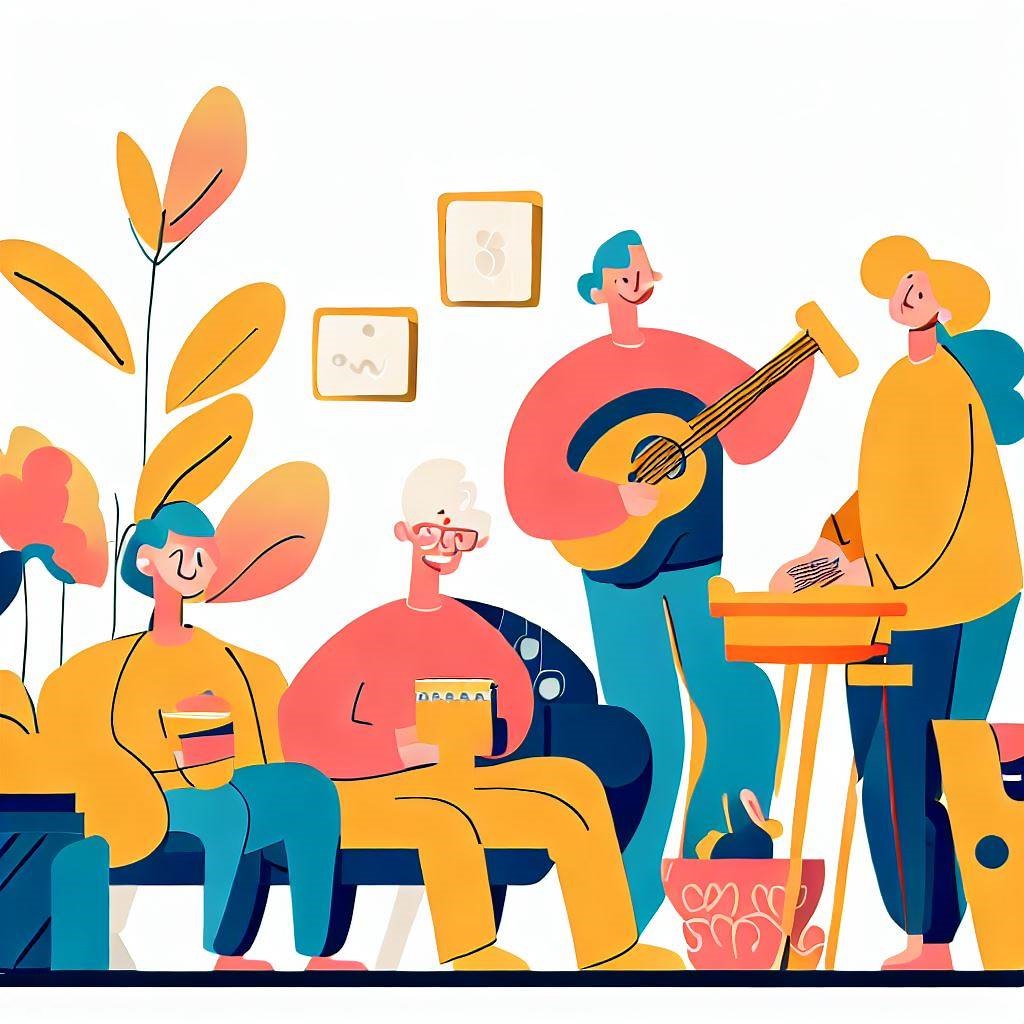The Importance of Hobbies for Seniors
As we age, it becomes increasingly important to stay active and engaged in meaningful activities. Hobbies offer a way to maintain mental, emotional, and physical well-being, while providing an opportunity for social interaction and personal fulfillment.
Benefits of Engaging in Hobbies
Hobbies have numerous benefits for seniors, including reducing stress, promoting a sense of accomplishment, and fostering social connections. Furthermore, engaging in hobbies can help maintain cognitive abilities, improve mood, and increase overall life satisfaction.
Assessing Your Interests and Abilities
Reflecting on Past Hobbies and Interests
Start by thinking about the activities you’ve enjoyed in the past or have always wanted to try. Reflect on your skills, talents, and personal preferences to identify hobbies that will be engaging and fulfilling.
Considering Physical and Cognitive Abilities
When selecting a hobby, consider your current physical and cognitive abilities. Choose activities that are appropriate for your level of mobility, strength, and mental capacity, while also providing room for growth and improvement.
Balancing Personal Preferences and Health Benefits
It’s important to find a balance between hobbies that you enjoy and those that offer health benefits. Ideally, your chosen activities should provide both personal satisfaction and promote overall well-being.
Social Hobbies for Seniors
Joining Clubs and Groups
Participating in clubs or groups is a great way to meet new people and foster social connections. Look for local clubs that share your interests, such as book clubs, gardening groups, or walking clubs.
Volunteering and Community Involvement
Volunteering is another way to stay socially engaged while contributing to your community. Many organizations are in need of volunteers, including schools, hospitals, and non-profits. Volunteering can also help you learn new skills and gain a sense of purpose.
Participating in Group Classes and Workshops
Taking classes or attending workshops can be both educational and social. Explore local community centers, senior centers, or libraries for classes in cooking, art, dance, or other areas of interest.
Creative Hobbies for Seniors
Arts and Crafts
Arts and crafts offer an outlet for creativity and self-expression. Painting, drawing, pottery, knitting, and woodworking are just a few examples of activities that can be both relaxing and fulfilling.
Writing and Journaling
Writing is a powerful way to express yourself and record your memories. Journaling, writing poetry, or even working on a memoir can provide mental stimulation and emotional release.
Music and Dance
Whether you’re a seasoned musician or dancer or a complete beginner, music and dance can be incredibly rewarding hobbies. Consider joining a local choir, taking dance lessons, or learning a musical instrument.
Physical Hobbies for Seniors
Gardening and Horticulture
Gardening is a great way to stay active while enjoying the outdoors. Gardening has been shown to improve mood, reduce stress, and even provide physical health benefits.
Walking and Hiking
Walking and hiking are excellent low-impact activities that can help maintain cardiovascular health, build strength, and improve balance. Look for walking groups or explore local trails to get started.
Tai Chi
Tai Chi is a gentle forms of exercise that promote flexibility, balance, and relaxation. Many community centers and senior centers offer classes specifically designed for older adults.
Mental Stimulation and Learning Hobbies for Seniors
- Puzzles and Brain Games
- Crossword puzzles, Sudoku, and other brain teasers
- Benefits of brain games for cognitive health
- Language Learning
- Choosing a language to learn
- Resources for language learning: apps, classes, and conversation partners
- Exploring Technology and Online Courses
- Introduction to technology: tablets, smartphones, and computers
- Online courses: Massive Open Online Courses (MOOCs), webinars, and skill-sharing platforms
Tips for Trying New Hobbies
- Setting Realistic Goals and Expectations
- Establishing achievable milestones
- Celebrating progress and accomplishments
- Embracing a Beginner’s Mindset
- Being open to learning and making mistakes
- Seeking guidance and asking questions
- Seeking Support from Friends and Family
- Sharing your new hobby with others
- Forming hobby groups or finding like-minded individuals
Conclusion
- The Impact of Hobbies on Well-Being and Quality of Life
- Recap of the benefits of hobbies for seniors
- Personal anecdotes and success stories
- Encouragement to Explore and Discover New Hobbies
- The lifelong journey of learning and personal growth
- A call to action for seniors to embrace new experiences
